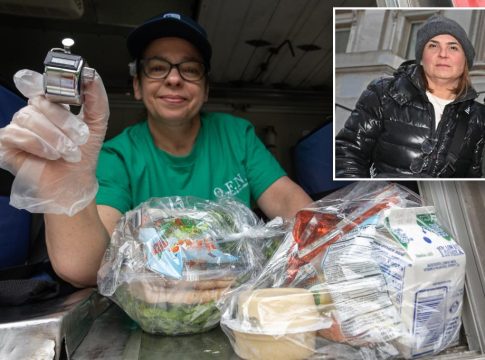NYC’s Summer Meal Program: A Culinary Celebration for All!
As the sun blazes down on New York City this summer, the Department of Education has whipped up a feast to keep the city’s youth nourished and energized! And while these meals are absolutely free, what you’ll find on the tables is a deliciously diverse spread that reflects the city’s rich culinary tapestry.
A Flavorful Array of Halal Options
Picture this: You stroll into your local park or library, and you’re greeted by the enticing aroma of breakfast and lunch—both prepared with care and creativity. The DOE is serving up a drool-worthy lineup of halal meals at more than 25 spots around the city. Whether you’re an early bird craving fluffy buttermilk pancakes or a lunch enthusiast eyeing golden chicken tenders, there’s something for everyone.
Morning Delights:
- Waffles generously drizzled with syrup
- Zucchini and banana bread—moist, sweet, and oh-so-satisfying
- Whole-grain bagels, perfect for a quick and guilt-free bite
Lunch Treats:
- Tender chicken sandwiches with a side of crisp corn
- Veggie burgers packed with flavor
- Scrumptious empanadas that transport your taste buds straight to Latin America
The best part? You don’t need an ID or any paperwork—just roll up and dig in!
A Missed Opportunity: Where’s the Kosher?
However, amidst this bountiful spread of halal delights, there’s a notable omission that has some community advocates raising their eyebrows: kosher meals. While halal options are plentiful, kosher meals remain a secretive specialty—available only by special request and, as of now, lacking a clear ordering process.
Karen Feldman, a dedicated teacher and advocate, voiced her concerns: “Jewish families who keep kosher deserve the same outreach to feel fully included in this important program.” This omission has been a recurring theme, sparking conversations about dietary inclusivity within the city’s meal initiatives.
Bridging Cultures through Food
Food is more than sustenance; it’s a cultural bridge. Both halal and kosher meals represent significant dietary laws and beliefs, creating a need for representation and choice in communal meal programs. Both Muslim and Jewish families deserve to see their dietary restrictions honored in public initiatives.
In 2020, there was a similar uproar surrounding the availability of kosher meals, leading to calls for action. As food access remains a vital issue, the DOE must address these gaps to ensure all dietary needs are embraced.
Nourishment for All
The essence of the summer meal program reflects more than just food—it symbolizes community, care, and nourishment in a bustling urban setting. With the DOE’s budget of $600 million focusing on feeding the city’s youth, we hope to see a more inclusive future where every child—regardless of dietary needs—can partake in the joys of a shared meal.
So whether you fancy a halal meal or mistakenly wander into a kosher kitchen, just remember: the real flavor lies in the community spirit that binds us all together.

Covers wellness, nutrition, mental health, and daily life tips.
Bio: Talia brings a background in health journalism and holistic living to help readers live better, one tip at a time.

